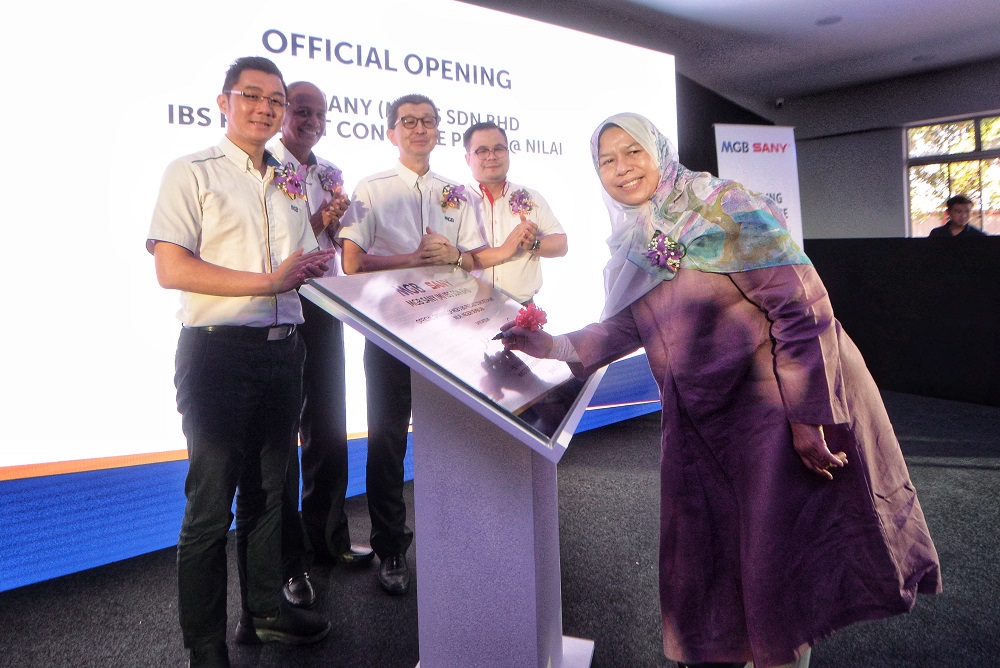NILAI, March 16 — Integrated construction and development services company MGB Berhad today opened its first permanent Industrialised Building System (IBS) precast concrete plant capable of producing a maximum of 4,000 units of properties annually.
The plant which was launched today by Housing and Local Government Minister Zuraida Kamaruddin will see Malaysia’s total possible IBS units produced increase to 23,000 from 19,000 units each year.
MGB group managing director Tan Sri Lim Hock San said the Nilai facility is to be used internally, mainly by parent company and developer LBS Bina Group Berhad.
“The first stage is to supply for LBS’ own projects. Today we ordered more than 2,500 units for this year. When this plant is operating at full capacity, we may consider going to government projects or approaching other developers.
“So if there is good demand from the market for the 4,000 units and with support from the government we may have to shift and increase the capacity from 4,000 to 6,000,” he said during the launch.
The plant operation is currently keeping to regular work hours to produce around 2,000 units per year. Running 24 hours would raise production to its full capacity or 4,000 units annually.
The RM40 million plant is a joint venture between MGB and Sany Construction INdustry Development (M) Sdn Bhd, a subsidiary of China-based Sany Group Co Ltd.
In May last year, MGB deployed its first mobile IBS plant at LBS Alam Perdana township with a production capacity of 2,000 units of properties per year and successfully produced and supplied for the pilot project which consisted of 673 units of double storey terrace houses.

The project was completed within 12 months instead of 18 months leading to a 33 per cent saving on construction time and reduced dependency on manual labour by 31 per cent — achieving a 49 per cent reduction in total on-site labour costs.
“We expect the demand for IBS components to increase steadily as more and more builders are looking at alternative methods to increase efficiency, quality and productivity amidst a subdued property market.
“We are confident that demand will increase further when the proposal to make IBS mandatory in 2020 is approved and come into effect,” said Lim.
During the press conference, Zuraida also said that by 2024, the Housing and Local Government Minister will utilise IBS components for all of its affordable housing projects.
Currently, the ministry’s adoption rate is at 30 to 40 per cent. Meanwhile, CIDB statistics show that the private sector adoption of the IBS currently stands at an estimated 35 per cent out of the 50 per cent target in 2020.






















